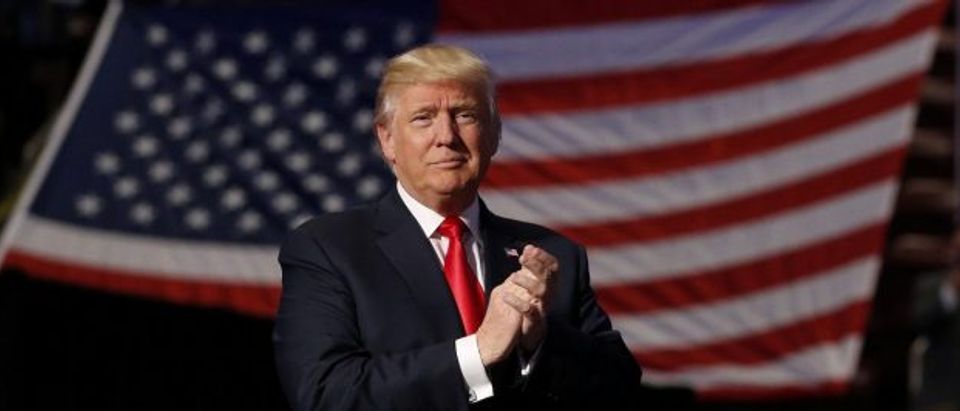President-elect Donald Trump’s proposed national security team seems poised to majorly disagree on a host of issues, and it appears that Trump likes it that way.
Throughout his leadership of the Trump organization he would reportedly encourage factions to compete with each other until he himself ultimately took a side. The cycle would then repeat itself on another decision, normally resulting in a binary win or loss for a faction.
Trump will face a review of anti-ISIS policy, sanctions on Russia with respect to its actions in Ukraine, the enduring mission in Afghanistan, U.S. policy towards China, and a myriad of other foreign policy problems. His national security cabinet gives him a bevy of perspectives to draw from when making his decisions.
The biggest differences likely lie between Marine Gen. James Mattis (Ret.), Trump’s pick for Secretary of Defense, and Army Lt. Gen. Michael Flynn (Ret.), Trump’s pick for national security advisor. One of Mattis’s first orders of business while serving as commander of U.S. central command was to effectively fire Flynn while he was under investigation for allegedly mishandling classified information.
On policy issues the two seem most poised to clash on Russia. Flynn forcefully advocated for working with Russia to combat the Islamic State threat throughout the 2016 campaign. Mattis conversely told reporters in May 2015, that “in the near term, I think the most dangerous might be Russia,” even calling Putin “delusional.”
Trump’s pick for Secretary of state, Rex Tillerson, will also join the discussion and has worked with Russia in the past as Exxon Mobil’s CEO. Tillerson managed Exxon’s relationship with Russia since the late 1990’s before ascending to the post of CEO in 2006. He pioneered a major 2011 deal with Russia’s state-owned oil company that allowed Exxon access to Russia’s Arctic oil reserves. The deal was expanded in 2013, earning Tillerson a medal of friendship from Russian President Vladimir Putin himself.
Tillerson also has taken public positions in stark opposition to Trump. Tillerson generally opposes sanctions as a diplomatic tool, which the U.S. would have to enact, if it were to withdraw from the Iran deal. Trump called the Iran agreement “the worst deal ever negotiated” throughout the 2016 campaign, while Tillerson indicated he would be willing to do business with Iran under the terms of the nuclear deal.
Mattis more closely aligns with Trump’s position on the Iran deal, and was reportedly forced to retire five months early for asking tough questions on Iran. Mattis did not oppose the deal itself, but instead asked provocative questions about the long-term impact of the deal. Questions he posed to President Barack Obama and his team included, “what do you do with Iran once the nuclear issue is resolved and it remains a foe? What do you do if Iran then develops conventional capabilities that could make it hazardous for U.S. Navy ships to operate in the Persian Gulf?” When officials would answer or demur he would say, “And then what?”
Follow Saagar Enjeti on Twitter
Send tips to saagar@dailycallernewsfoundation.org
All content created by the Daily Caller News Foundation, an independent and nonpartisan newswire service, is available without charge to any legitimate news publisher that can provide a large audience. All republished articles must include our logo, our reporter’s byline and their DCNF affiliation. For any questions about our guidelines or partnering with us, please contact licensing@dailycallernewsfoundation.org.


